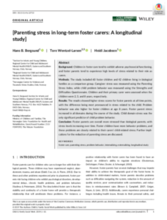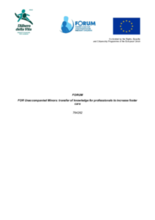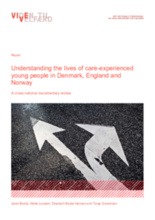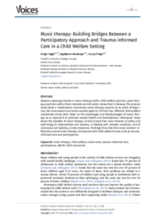Displaying 61 - 70 of 111
This country care review includes the care-related Concluding Observations adopted by the Committee on the Rights of the Child and the Committee on the Rights of Persons with Disabilities.
This current systematic literature review aims to examine what is known about foster parents' needs, satisfaction and perceptions of foster parent training.
The primary aim of this study is to summarise research findings about the use of assessment frameworks, that is, structured models that guide information collection and decision making in child protection services, by reviewing the literature.
This article explores the history of strained relations between the Norwegian Child Welfare Services (CWS) and various migrant groups.
This article examines the professional identities of family therapists employed by Family Counselling Services (FCS) in Norway and their experiences providing therapeutic services to parents whose children are placed in public care.
The study included 60 foster children and 42 children living in biological families as a comparison group. Caregiver stress was measured using the Parenting Stress Index, while child problem behavior was measured using the Strengths and Difficulties Questionnaire.
This article is written as part of the FORUM project (FOR Unaccompanied Minors: transfer of knowledge for professionals to increase foster care), an EU funded project which sought to enhance the capacity of professionals to provide quality foster care for unaccompanied migrant children, primarily through the transfer of knowledge. The article aims to contribute to this transfer of knowledge by bringing together literature which is of relevance to professionals developing or enhancing foster care services for unaccompanied migrant children.
This working paper has reviewed cross-national datasets for the general population and available national data and other relevant (grey and academic) literature concerned with young people in care and care leavers in the three study countries.
The present study is part of a knowledge translation project in collaboration with local CWS with the aim to develop, implement, and evaluate Enhanced Academic Support (EAS) for primary school children in Child Welfare Services (CWS) in Norway.
Despite a growing interest in music therapy within child welfare practice, music therapy practices within these contexts are still under-researched in Norway. The present study takes a collaborative community music therapy practice as its point of departure.





